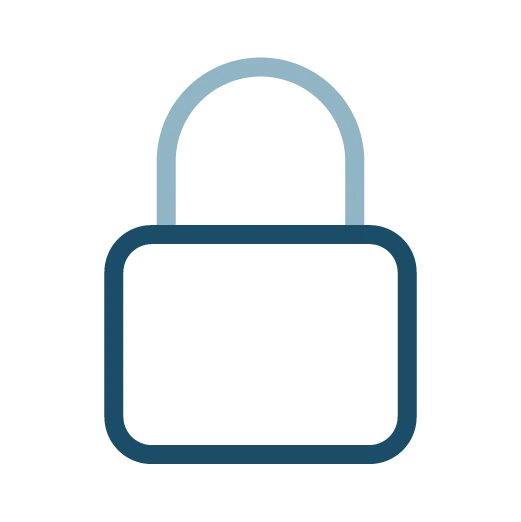Debt Arrangement Scheme (DAS) Scotland
Scroll to learn more

How could the Debt Arrangement Scheme help you?
The Debt Arrangement Scheme (DAS) is a debt management plan that was introduced by the Scottish government. Instead of juggling multiple repayments to creditors, DAS gives you the ability to deal with all of your debts via one, affordable monthly payment. Interest and charges are frozen from the outset and are written off once the plan is successfully completed. So if you are struggling to keep on top of your debts, but feel you could repay what you owe given enough time, DAS may be an option for you.
Unlike protected trust deeds and bankruptcy, DAS doesn’t affect the things that you own.
When you apply for the Debt Arrangement Scheme through Cleanslate, we will deal with your creditors on your behalf, taking the stress out of the situation. We will be by your side throughout your payment plan. Recognising that your financial circumstances can change over time, DAS can be flexible too.
Advantages & Disadvantages of the Debt Arrangement Scheme
What are the advantages of the Debt Arrangement Scheme?
There are many advantages of the Debt Arrangement Scheme, a few are:
- We will agree a personalised debt repayment plan based on your needs and lifestyle.
- Your monthly payments will be based on what you can afford.
- The interest on your debt will be frozen.
- You will be protected against creditor action.
- Your assets will be protected meaning you will not be asked to sell your house, or your car.
- We will deal with creditors on your behalf.
- If your circumstances change, DAS can be flexible, including options to request to vary the plan and/or take payment breaks if your income has significantly reduced.
What are the disadvantages of the Debt Arrangement Scheme?
If you think the Debt Arrangement Scheme could help you, you may wish to consider:
- Your credit file will be updated to reflect the fact you are in a debt payment plan and this will remain visible for six years.
- You may find it difficult to obtain new credit or use an overdraft while you are in a debt payment plan.
- You will be required to make all payments towards your debt payment plan, and continue to pay your monthly expenditure and bills. If you fail to do so, your plan could be revoked.
- If you are required to submit a self assessment tax return, you must do so by the required deadline. If you fail to do so, your plan could be revoked.
- Interest & charges are only frozen while you keep to the agreed upon plan. If your plan is revoked due to breach of its conditions, your creditors may add back on interest & charges which had been frozen previously.
Frequently asked questions
What is the Debt Arrangement Scheme?
The Debt Arrangement Scheme (DAS) has been put in place by the Scottish Government. It allows people who are able to repay their debts in full given enough time, the ability to do just that. If a DAS is approved you will have protection from your creditors, including freezing interest and charges, whilst you make payments under the DAS.
In DAS you propose a monthly payment to your creditors, which would allow your debts to be paid in full over time. If your creditors agree then the DAS will be approved.
In addition to you and your creditors, there are three parties involved in the administration of a DAS:
- The Continuing Money Adviser, who provides initial money advice, assists in preparation and submission of an application for the approval of a DAS and provides ongoing support throughout the term of the DAS, including annual reviews of financial circumstances. When you apply for a DAS through Cleanslate, we take on the role of your Continuing Money Adviser.
- The Payment Distributor, who distributes funds to creditors each month following your monthly payment being made.
- The DAS Administrator, who is responsible for the approval of debt payment programmes (DPPs), approving money advisers and payments distributors and maintaining the DAS Register and eDEN (the online case administration system used for administration of all DPPs under DAS).
Once a DAS is approved, the costs of administering the scheme are borne by your creditors. So, for every £1 you pay into DAS, 78p is distributed amongst your creditors, 2p is paid as a fee to the DAS Administrator, and the remaining 20p is paid as fees split between your Continuing Money Adviser and your Payment Distributor.
On successful completion of a DAS, creditors will have received 78% of the debt owed to them. You cannot be held liable for any further payments towards debts included in the DAS, or any interest, fees, penalties or charges which would have accrued during the scheme.
Who can apply for the Debt Arrangement Scheme?
The Debt Arrangement Scheme is available to any individual (or couple) living in Scotland struggling with unsecured debt (with a small number of exceptions). You cannot apply for the Debt Arrangement Scheme if:
- You are in a protected trust deed.
- You have been declared bankrupt, and have not yet been discharged.
- You are subject to a time to pay direction or order.
- You are paying debts under a conjoined arrestment order.
What debts are included?
The Debt Arrangement Scheme covers all of your unsecured debts, for example credit cards, store cards and catalogue debts, overdrafts, unsecured loans, payday loans and debt owed to HMRC. It also includes arrears on your mortgage, rent, utilities or council tax.
Will people find out?
Will my house, car and personal possessions be affected?
Can I still have a bank account?
You can still use a bank account; however you won’t be able to use an overdraft facility.
Will my credit file be affected?
Your credit file will be updated to show that you have entered into a debt payment plan. This means you won’t be able to obtain credit while you’re in this plan, and may find it difficult to do so for a period after this has ended. You may however find that you have less need to borrow anyway, having taken back control of your finances.
Are there any fees?
There is no upfront fee required to apply for a DAS. This is the same whether you apply to the scheme through a private sector organisation such as Cleanslate, or through a free sector advice agency such as a Citizens Advice Bureau or debt charity.
Once a DPP is approved, the costs of administering the scheme are borne by creditors. So, for every £1 you pay into DAS, 78p is distributed amongst your creditors, 2p is paid as a fee to the DAS Administrator, and the remaining 20p is paid as fees split between your Continuing Money Adviser and your Payment Distributor.
[insert company name] would receive ongoing fees as a Continuing Money Adviser under DAS. Details of the amount of this fee would be explained to you in the engagement letter issued prior to making an application for DAS.
To find out more about managing your finances and receive free debt advice, you can visit Money Helper.
What is Money Helper?
To find out more about managing your money and getting free advice, you can visit Money Helper, an independent service set up to help people manage their money.
Other debt solutions

Protected Trust Deed
If you can’t afford to repay your debts in full, a protected trust deed allows you to repay what you can over an agreed period of time. Once completed, the remaining balance is written off.

Bankruptcy
Often people think of the word “bankruptcy” as too serious to contemplate. However, for those that need it, bankruptcy can offer a way to get back on track and start again.
Not sure which solution is right for you?
